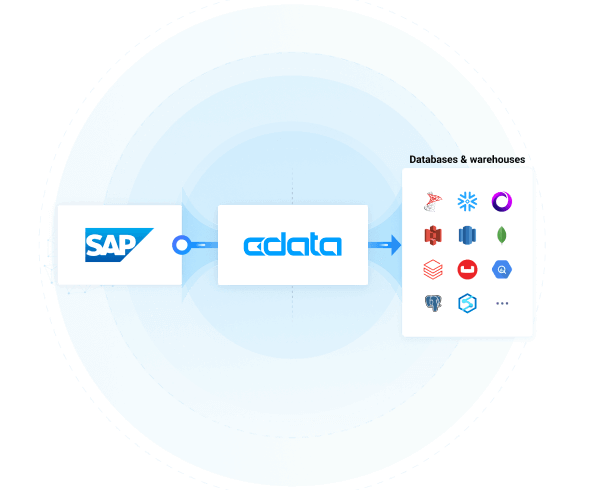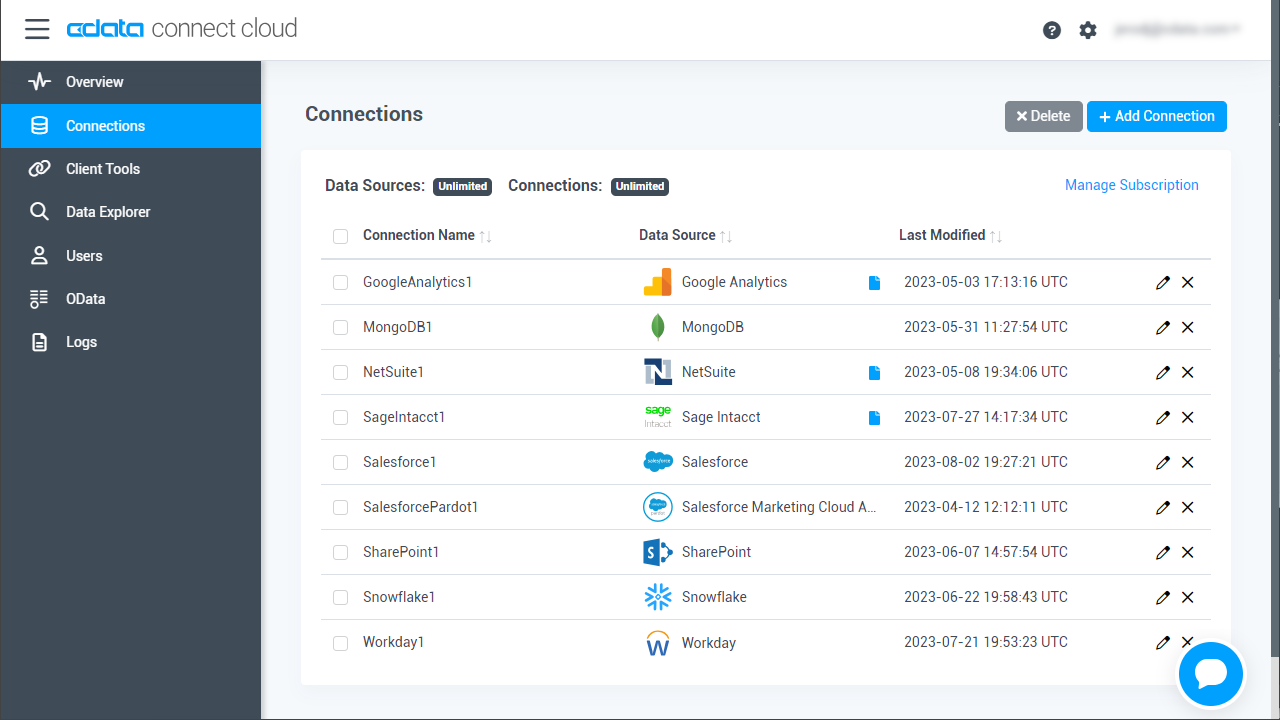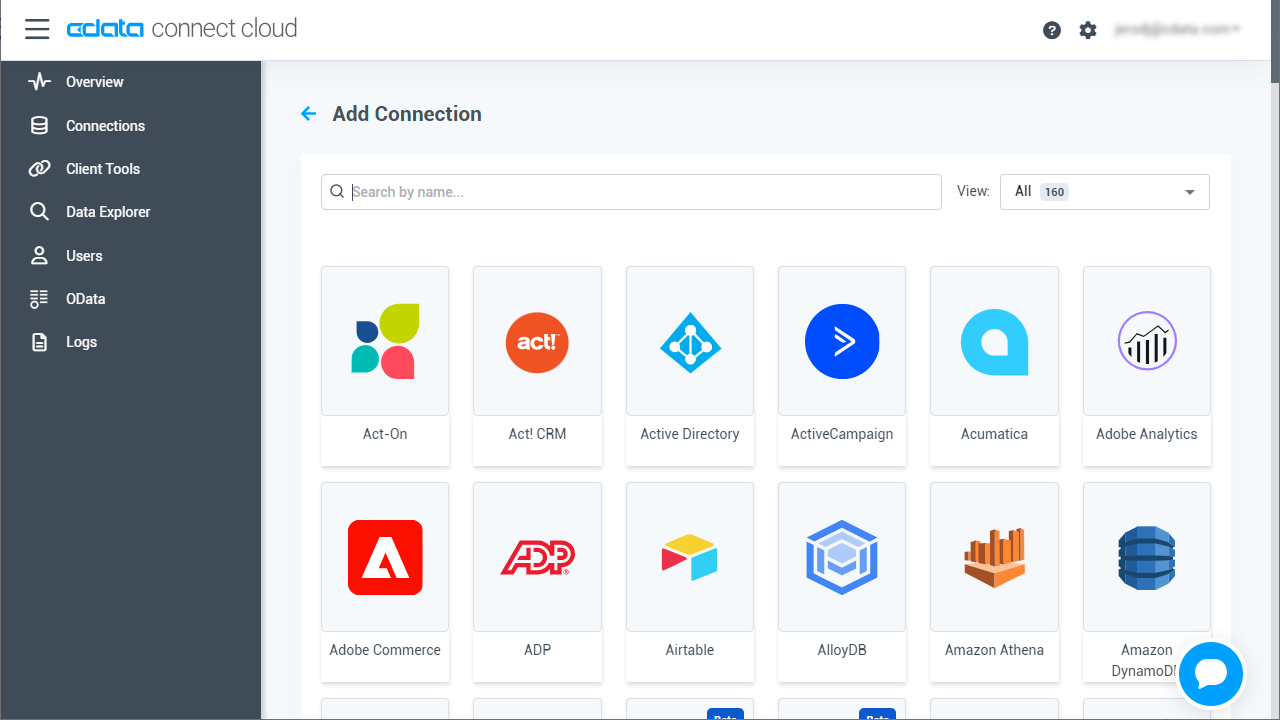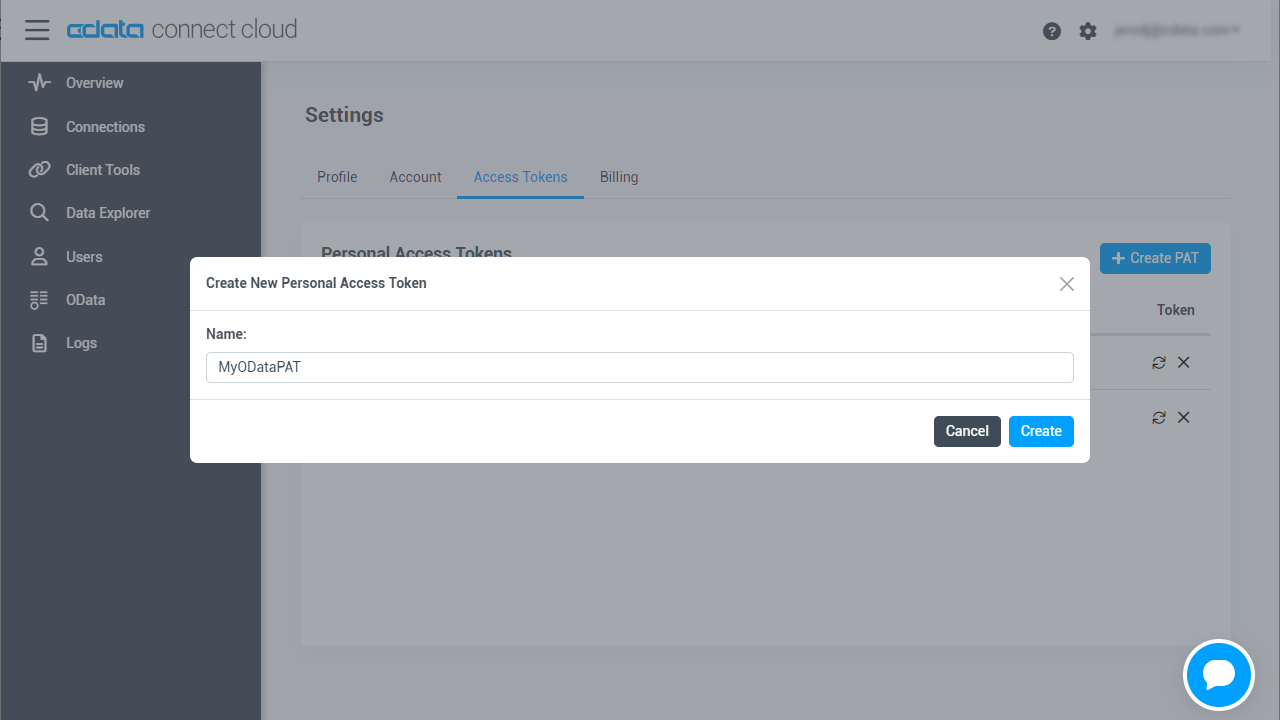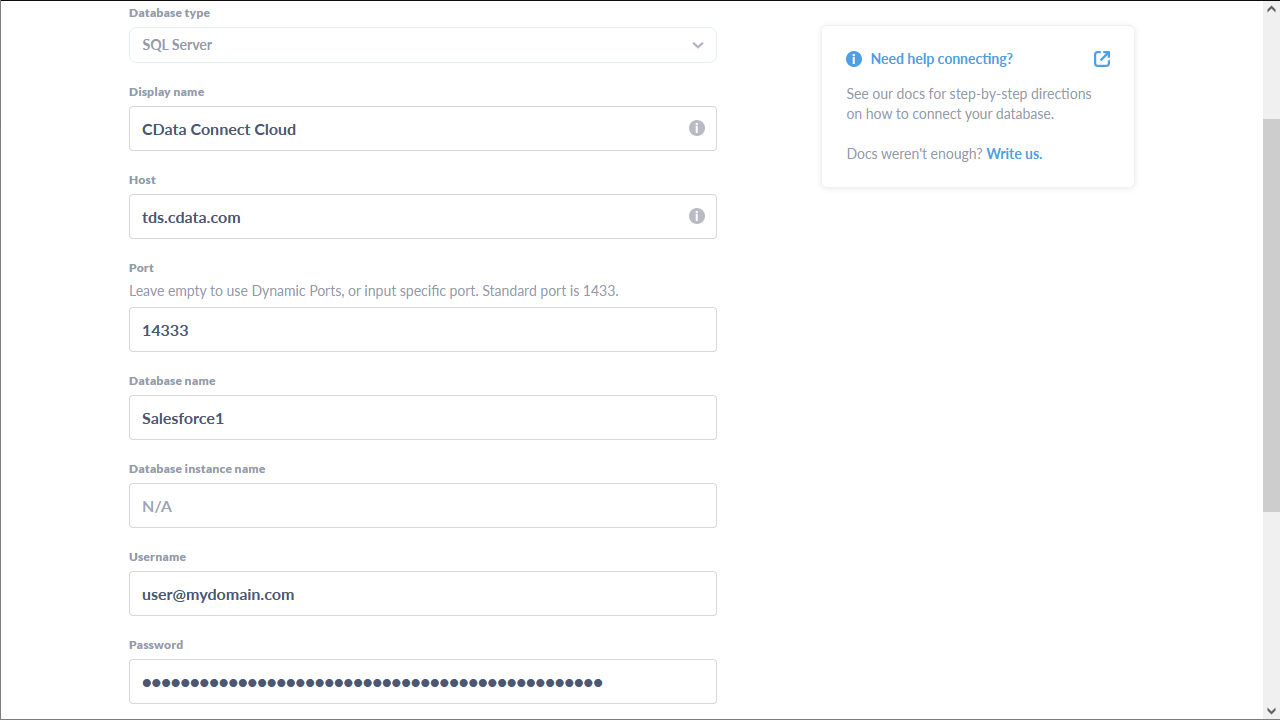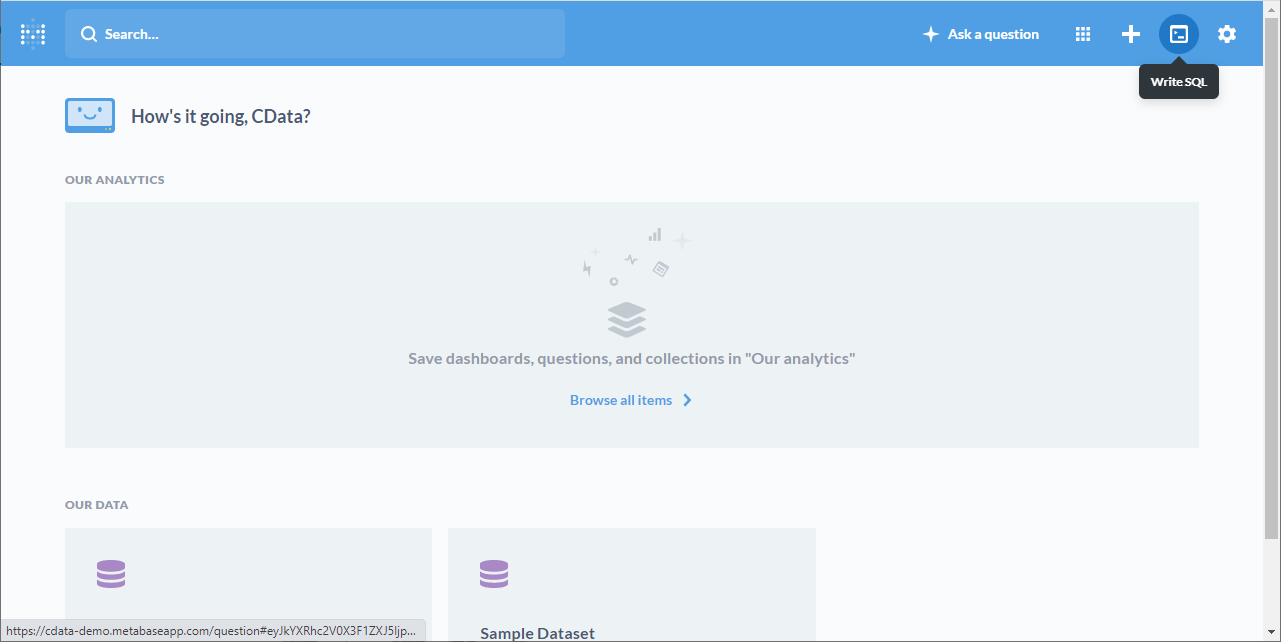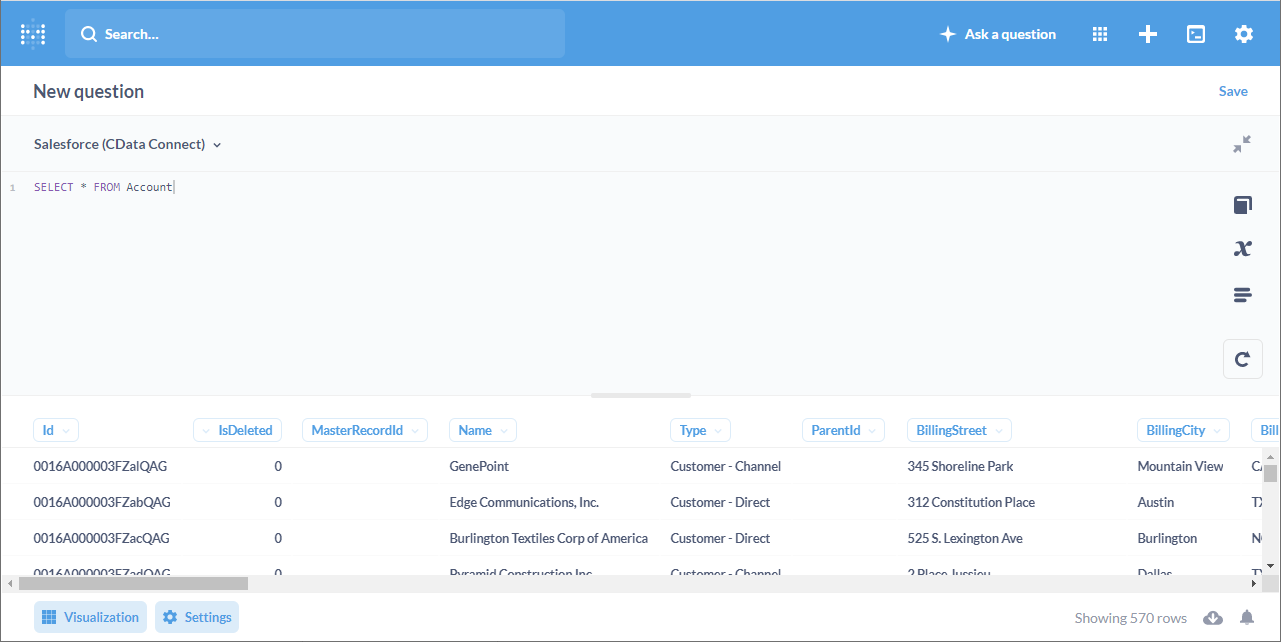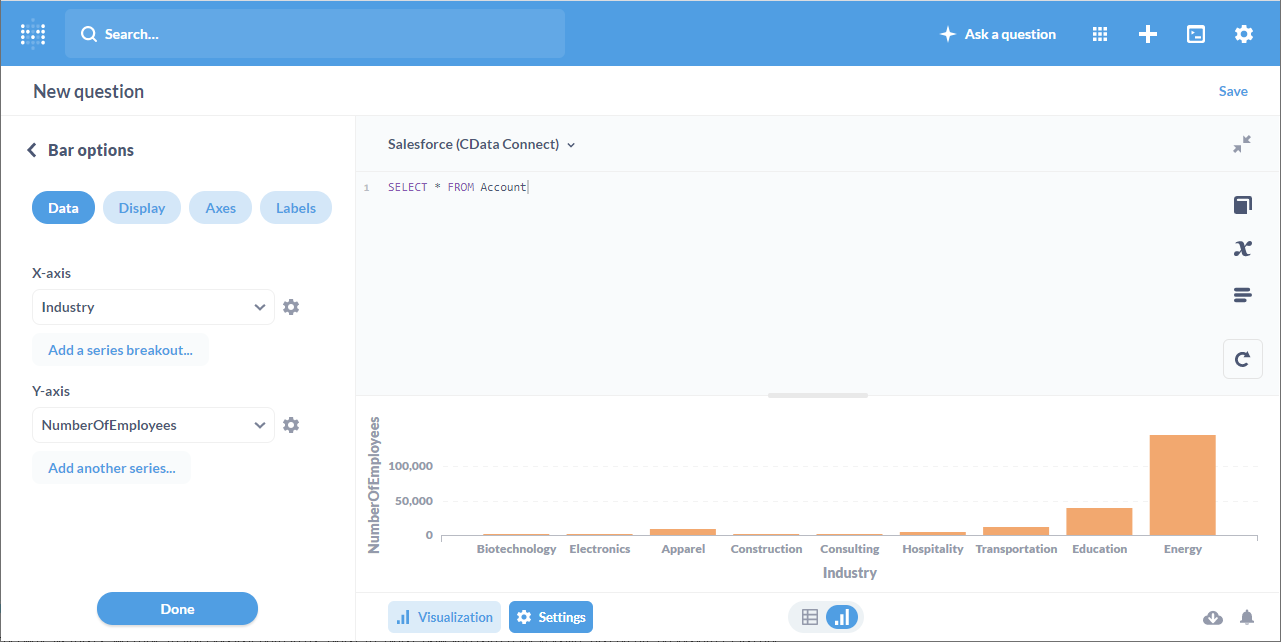Discover how a bimodal integration strategy can address the major data management challenges facing your organization today.
Get the Report →How to integrate Metabase with Power BI XMLA Data
Use CData Connect Cloud to connect to live Power BI XMLA data and create an interactive dashboard in Metabase from Power BI XMLA data.
Metabase is an open source data visualization tool that allows users to create interactive dashboards. When paired with CData Connect Cloud, users can easily create visualizations and dashboards linked to live Power BI XMLA data. This article describes how to connect to Power BI XMLA and build a simple visualization using Power BI XMLA data.
CData Connect provides a pure cloud-to-cloud interface for Power BI XMLA, allowing you to easily integrate with live Power BI XMLA data in Metabase — without replicating the data. Connect looks exactly like a SQL Server database to Metabase and uses optimized data processing out of the box to push all supported SQL operations (filters, JOINs, etc) directly to Power BI XMLA, leveraging server-side processing to quickly return Power BI XMLA data.
Configure Power BI XMLA Connectivity for Metabase
Connectivity to Power BI XMLA from Metabase is made possible through CData Connect Cloud. To work with Power BI XMLA data from Metabase, we start by creating and configuring a Power BI XMLA connection.
- Log into Connect Cloud, click Connections and click Add Connection
![Adding a Connection]()
- Select "Power BI XMLA" from the Add Connection panel
![Selecting a data source]()
-
Enter the necessary authentication properties to connect to Power BI XMLA.
By default, use Azure AD to connect to Microsoft Power BI XMLA. Azure AD is Microsoft’s multi-tenant, cloud-based directory and identity management service. It is user-based authentication that requires that you set AuthScheme to AzureAD.
For more information on other authentication schemes, refer to the Help documentation.
![Configuring a connection (Salesforce is shown)]()
- Click Create & Test
- Navigate to the Permissions tab in the Add Power BI XMLA Connection page and update the User-based permissions.
![Updating permissions]()
Add a Personal Access Token
If you are connecting from a service, application, platform, or framework that does not support OAuth authentication, you can create a Personal Access Token (PAT) to use for authentication. Best practices would dictate that you create a separate PAT for each service, to maintain granularity of access.
- Click on your username at the top right of the Connect Cloud app and click User Profile.
- On the User Profile page, scroll down to the Personal Access Tokens section and click Create PAT.
- Give your PAT a name and click Create.
![Creating a new PAT]()
- The personal access token is only visible at creation, so be sure to copy it and store it securely for future use.
With the connection configured, you are ready to connect to Power BI XMLA data from Metabase.
Connect to CData Connect from Metabase
After creating the virtual database, navigate to your Metabase instance. Use the SQL Server interface to connect to Connect Cloud.
- Navigate to the administration screen (Settings -> Admin) and click "Add Database" from the "Databases" tab
![Adding a new database connection to Metabase.]()
- Configure the connection to Connect Cloud and click "Save"
- Database type: Select "SQL Server"
- Name: Name the connection (e.g. "Power BI XMLA (Connect Cloud)")
- Host: tds.cdata.com
- Port: 14333
- Database name: The name of the connection you just created (e.g. PowerBIXMLA1)
- Username: A Connect Cloud username (e.g. [email protected])
- Password: The PAT for the above Connect Cloud user
- Click to Use a secure connection (SSL)
![Configuring the connection to Connect Cloud.]()
Execute Power BI XMLA Data with Metabase
Once you configure the connection to Connect Cloud, you can query Power BI XMLA and build visualizations.
- Use the "Write SQL" tool to retrieve the Power BI XMLA data
![Click the 'Write SQL' button.]()
- Write a SQL query based on the Power BI XMLA connection in CData Connect Cloud, e.g.
SELECT Country, Education FROM Customer WHERE Country = 'Australia'
![Collected data (Salesforce is shown).]()
- Navigate to the "Visualization" screen, choose a visualization, and configure the visualization
![Collected data (Salesforce is shown).]()
More Information & Free Trial
At this point, you have built a simple visualization from Power BI XMLA data in Metabase. You can continue to work with live Power BI XMLA data in Metabase just like you would any SQL Server database. For more information on creating a live connection to Power BI XMLA (and more than 100 other data sources), visit the Connect Cloud page. Sign up for a free trial and start working with live Power BI XMLA data in Metabase today.


